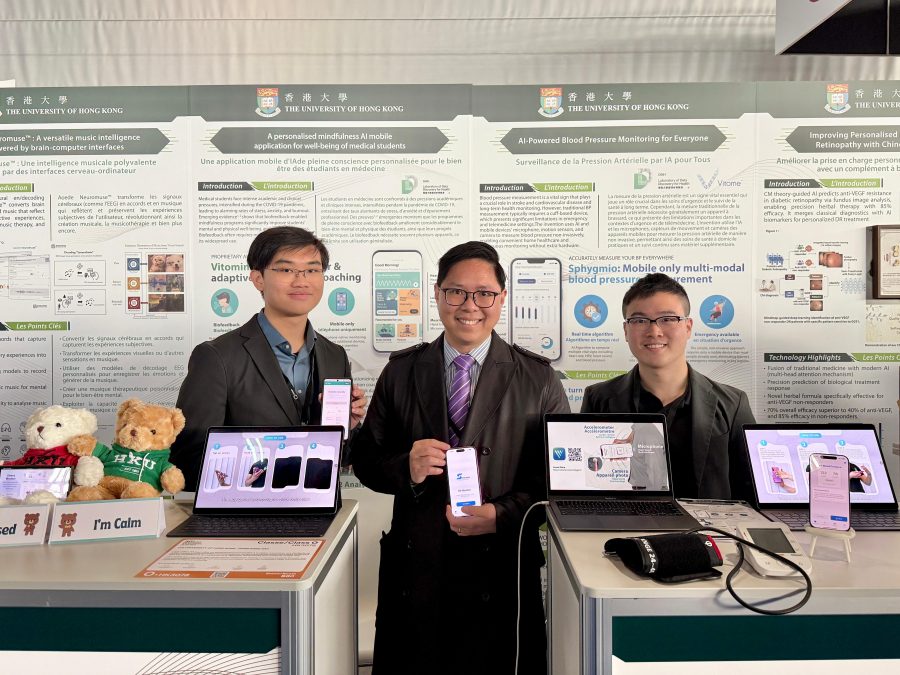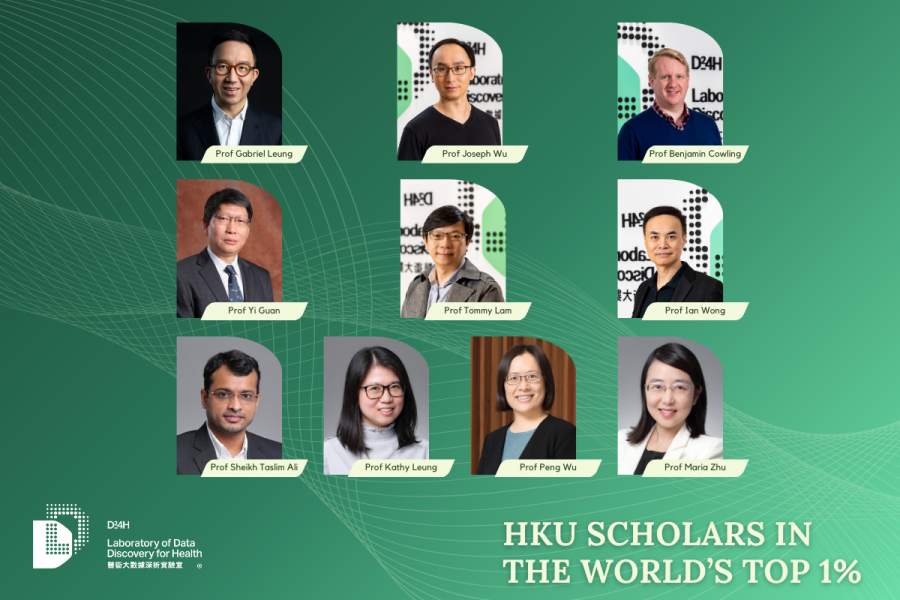AI Chatbot Triples HPV Vaccine Uptake in China: Landmark Trial
Nature Medicine study highlights scalable digital innovation in women’s health
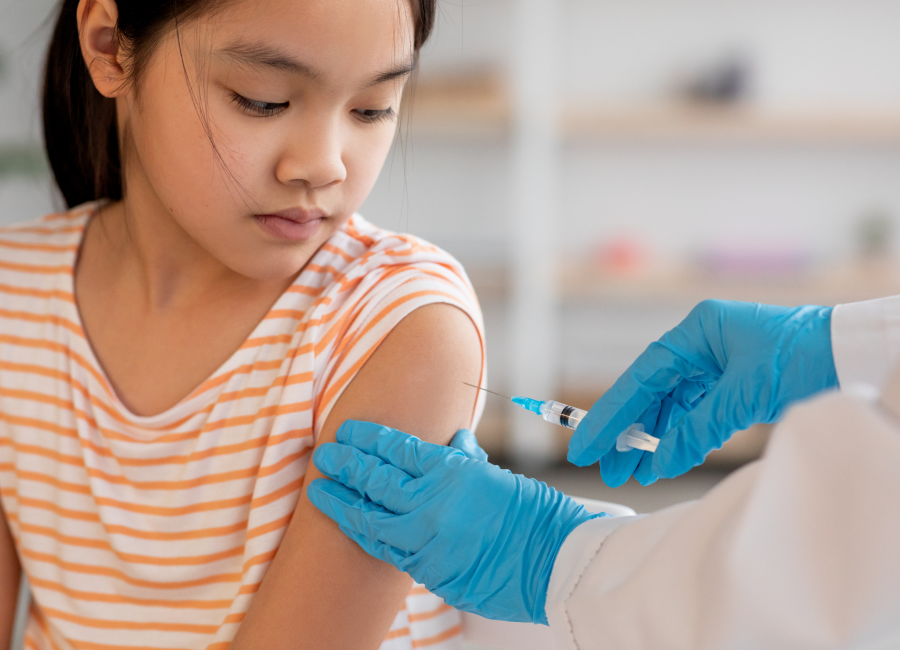
In a breakthrough for digital health and women’s health equity, researchers from the InnoHK Laboratory of Data Discovery for Health (InnoHK D²4H) and the School of Public Health (SPH) at the University of Hong Kong (HKU) have found that an AI (Artificial Intelligence)-powered vaccine chatbot significantly increased HPV vaccine uptake and improved parental health literacy in China. Published on April 7, 2025 in Nature Medicine, the study reports a more than threefold increase in vaccination initiation—marking the first large-scale randomised controlled trial to show that a conversational AI tool can influence real-world vaccination behaviour in a non-subsidised, routine care setting.
The trial was led by the InnoHK D²4H and SPH in collaboration with the Vaccine Confidence Project™ at the London School of Hygiene & Tropical Medicine (LSHTM) and Fudan University in Shanghai, China. It was conducted across megacity, urban, and rural settings. The study is part of the Moonrise Initiative, a strategic programme of the InnoHK D²4H dedicated to advancing women’s health through evidence-based, intelligent, human-centred innovation.
Background
Cervical cancer, caused by human papillomavirus (HPV), is one of the most preventable cancers—yet it still claims over 340,000 lives annually. China accounts for 22.8% of global cases, with vaccine coverage remaining low, particularly among girls aged 9 to 14—the World Health Organization (WHO)’s primary target group. Out-of-pocket costs and limited access to reliable information remain key barriers to vaccine uptake in China.
To address this, the research team developed a user-friendly, AI-powered chatbot that delivered trusted, personalised vaccine information. Available 24/7 via WeChat and web browsers, the chatbot simulated human conversations, responding to frequently asked questions about HPV, vaccine safety, eligibility, side effects, costs, and where to access services.
Research Findings
Between January and May 2024, the research team conducted a school-based cluster randomised controlled trial across 180 classes in Shanghai and Anhui Province, involving 2,671 parents of girls aged 12 to 15. Participants were randomly assigned to receive either usual care (standard health promotion) or the chatbot intervention for two weeks.
Key findings include:
– Vaccination initiation: 7.1% of parents in the chatbot group had scheduled or received an HPV vaccine for their daughters, compared to 1.8% in the control group.
– Healthcare engagement: 49.1% of chatbot users consulted a health professional about HPV vaccination, compared to 17.6% in the control group.
– Vaccine literacy: Participants’ understanding of HPV increased significantly (+0.38), as did rumour discernment (+0.32), and overall vaccine literacy scores (+0.70).
The impact was especially pronounced in rural areas, where parents in the chatbot group were 8.81 times more likely to initiate vaccination than those receiving standard information. Among mothers—the primary decision-makers—uptake was nearly four times higher.
Figure 1. Effect of HPV vaccine chatbot on HPV vaccination, consultation, and literacy
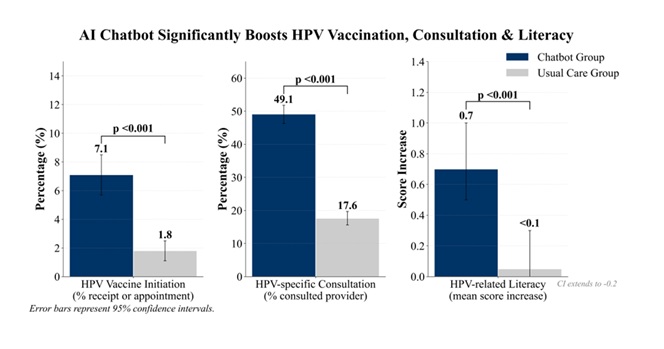
Figure 2. Effect of HPV vaccine chatbot by social economic conditions
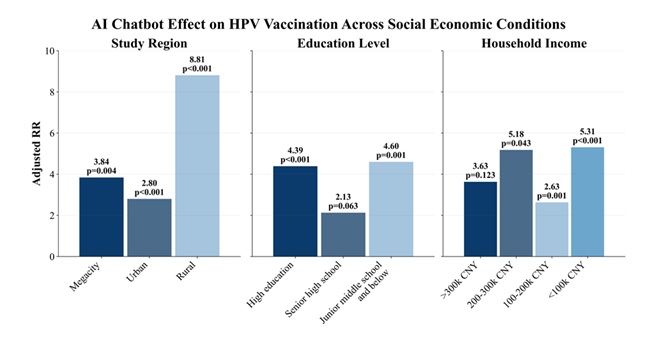
Leadership Perspectives
“This study shows how scientific rigor and digital innovation can drive immediate, measurable change—especially in moments of public health urgency,” said Professor Joseph Wu, Managing Director of the InnoHK D²4H and Sir Robert Kotewall Professor in Public Health at HKU. “This initiative highlights the power of AI not only to personalise care but also to reduce global health disparities. In under-resourced settings, tools like this can be transformative.”
“Delivering a scalable, trusted solution to public questions about vaccines is what global health innovation should strive for,” said Professor Heidi Larson, Co-Principal Investigator of the InnoHK D²4H and Founding Director of the Vaccine Confidence Project™. “This study offers a replicable approach to addressing questions and concerns raised by the public—challenges faced worldwide.”
“This is one of several real-world chatbot trials we are leading globally,” said Dr Leesa Lin, senior author from the InnoHK D²4H and LSHTM, who conceptualised and commissioned the study and leads the Moonrise Initiative. “What is unique here is the focus on equity—this intervention was designed not just for scale, but to reach those too often overlooked, particularly in women’s health.”
“We are proud to see a project like this translating AI into tangible public health benefits,” said Professor Joshua Ho, Lead Scientist of the InnoHK D²4H and Assistant Dean (Innovation & Technology Transfer) and Deputy Director of EdTech (AI) at the Li Ka Shing Faculty of Medicine of HKU. “It is a clear example of how HKU’s innovation ecosystem is shaping the future of digital health with global impact.”
Looking Ahead
The research team is now working to scale up the chatbot in other countries, including Japan, where HPV vaccine hesitancy has long been a concern. In parallel, they are examining AI’s feasibility for integration into healthcare systems—to enhance efficiency, accuracy, health literacy, access, and patient engagement at scale.
The chatbot model is also being adapted for broader health challenges, including mental health, maternal and child health, and pandemic preparedness. These efforts align with the Moonrise Initiative’s vision to advance women’s health globally through intelligent, responsible, and inclusive technologies.
Clinical trial registration: NCT06227689
Read the full article: https://www.nature.com/articles/s41591-025-03618-6
Acknowledgements
This research was supported by the InnoHK initiative of the Innovation and Technology Commission of the Hong Kong Special Administrative Region Government and the Merck Investigator Studies Program (MISP).
About the InnoHK Laboratory of Data Discovery for Health (InnoHK D²4H)
The InnoHK Laboratory of Data Discovery for Health (InnoHK D²4H), incorporated by the University of Hong Kong (HKU) and supported by the InnoHK initiative of the Innovation and Technology Commission of the Hong Kong Special Administrative Region Government, is a global health institute at the forefront of AI, big data, and public health. It brings together leading researchers to develop scalable, evidence-based solutions that improve health outcomes and reduce disparities worldwide.
A strategic programme within the InnoHK D²4H’s research portfolio, the Moonrise Initiative focuses on advancing women’s health through data-driven, human-centred innovation. Also supported by the Ideation Programme of the Hong Kong Science & Technology Parks Corporation, the Moonrise Initiative reflects the InnoHK D²4H’s commitment to tackling critical and often underrepresented areas of health with scalable, socially impactful solutions.
Media enquiries
InnoHK Laboratory of Data Discovery for Health (InnoHK D²4H)
Dr Leesa Lin (Email: llin@d24h.hk)
Mr Nathaniel Cheung (Email: info@d24h.hk)


